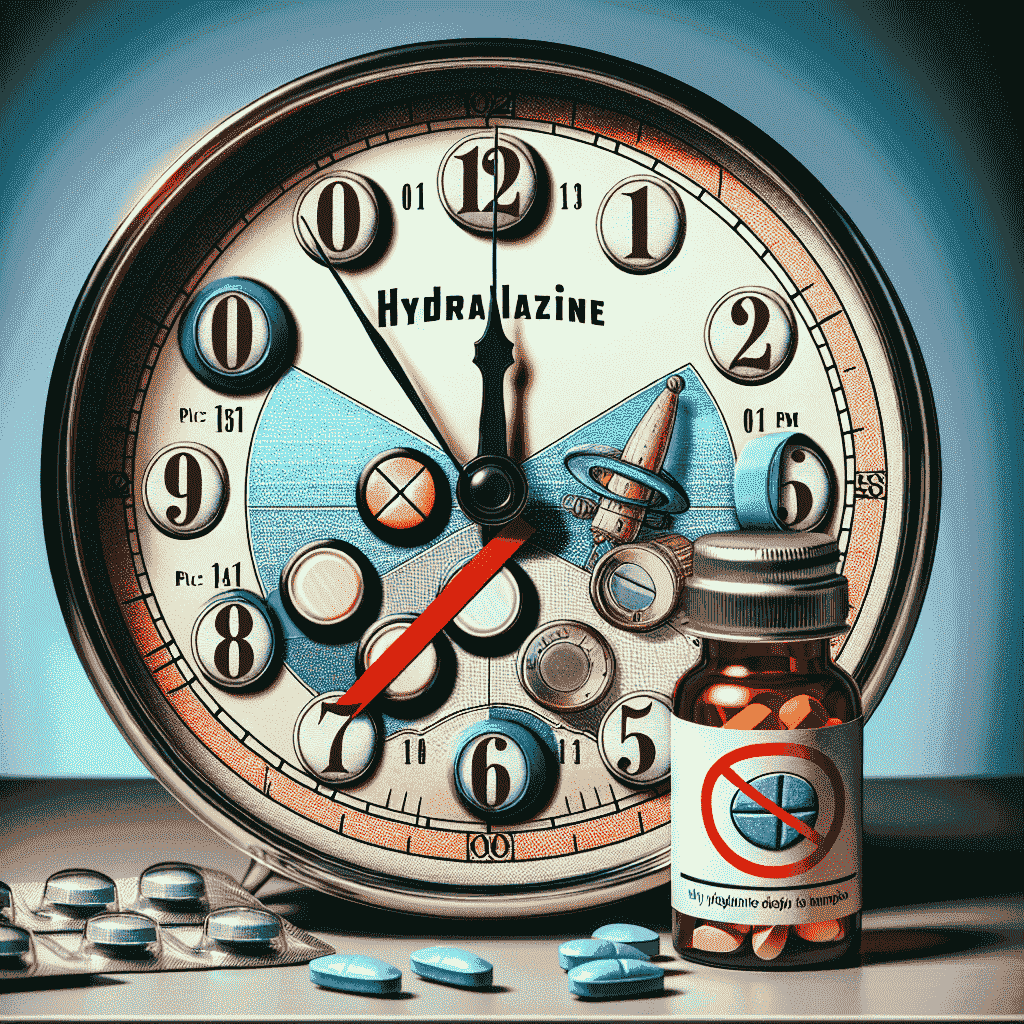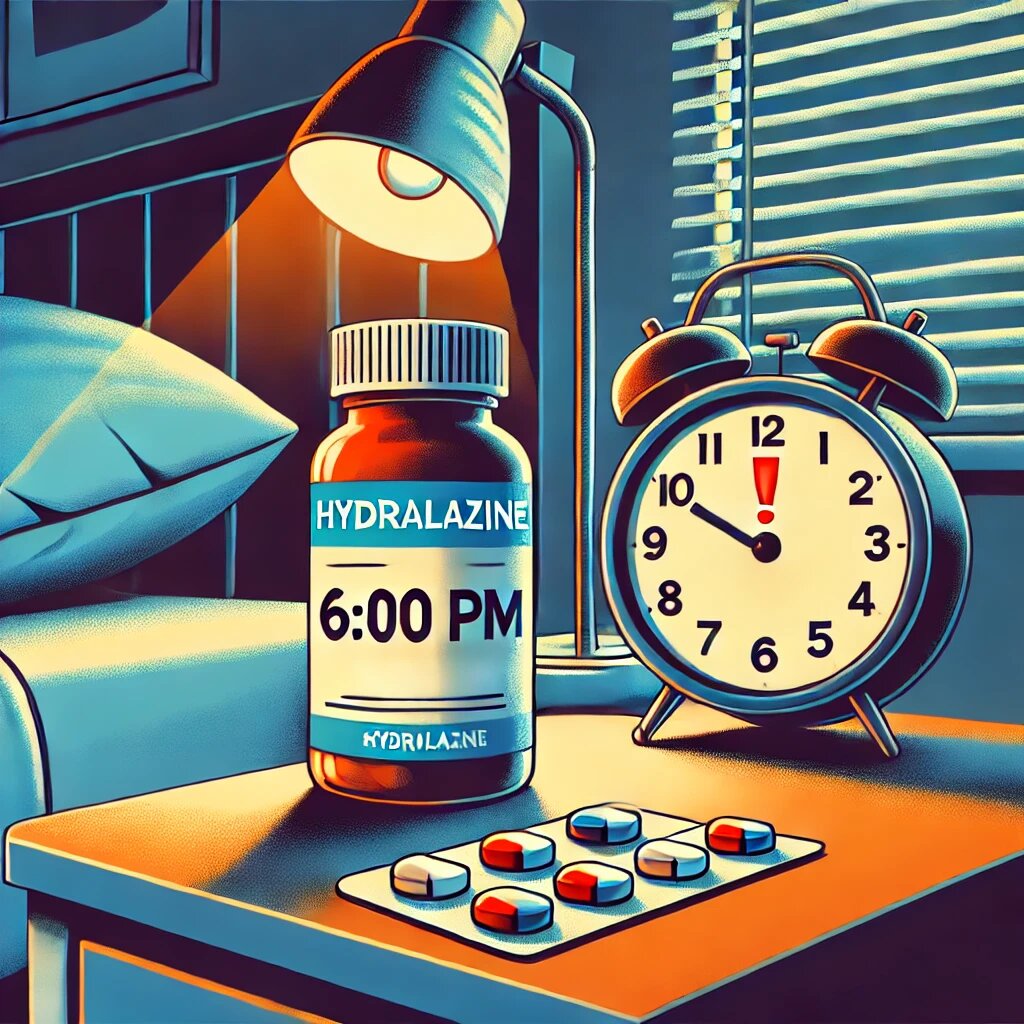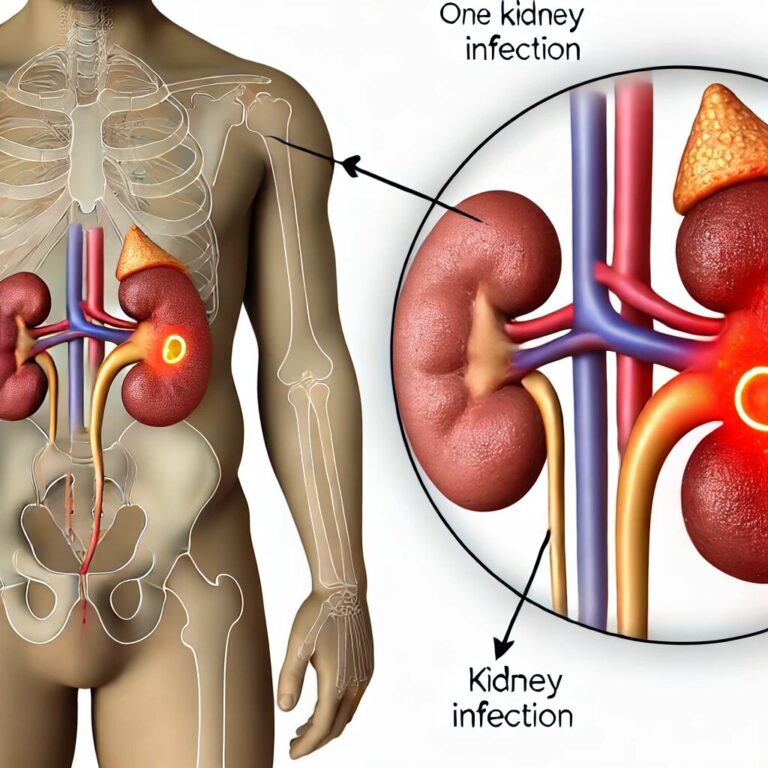Why Should You Not Take Hydralazine After 6 PM

Hydralazine is a medication commonly used to treat high blood pressure, heart failure, and other cardiovascular conditions. It works by relaxing the blood vessels and allowing for easier blood flow. While hydralazine can be an effective medication for managing these conditions, taking it at the right time of day is important.
In this article, we will discuss why you should not take hydralazine after 6 PM and how to properly manage your medication schedule for optimal results.
What are the Hydralazine?
Hydralazine is a medication primarily used to treat high blood pressure (hypertension) and heart failure. It belongs to a class of drugs known as vasodilators, which work by relaxing the muscles in the walls of the blood vessels. This relaxation causes the blood vessels to widen (dilate), allowing blood to flow more easily and reducing the workload on the heart.
Uses of Hydralazine:
- Hypertension (High Blood Pressure): Hydralazine is often prescribed when other medications alone do not adequately control blood pressure.
- Heart Failure: Hydralazine is sometimes used with other medications to treat heart failure. It helps reduce symptoms by making it easier for the heart to pump blood.
- Hypertensive Crisis: In emergencies, Hydralazine can be used to rapidly lower dangerously high blood pressure.
How Hydralazine Works:
Hydralazine acts on the smooth muscles of the arteries, causing them to relax. This vasodilation reduces resistance in the arteries, lowering blood pressure and making it easier for the heart to pump blood. Unlike some other antihypertensives, Hydralazine does not affect the veins, so it primarily lowers the pressure in the arteries.
Common Side Effects:
- Headache: Often occurs when starting the medication.
- Palpitations: Increased heart rate can occur as the heart responds to lower blood pressure.
- Dizziness: Especially when standing up quickly due to a drop in blood pressure (orthostatic hypotension).
- Edema: The swelling of the ankles and feet may occur due to fluid retention.
- Nausea and Vomiting: Gastrointestinal discomfort is a possible side effect.
Can you take Hydralazine after 6 PM?
Taking Hydralazine after 6 PM can increase the risk of experiencing several side effects that may disrupt your night. You might feel dizzy or have an increased heart rate, which can interfere with restful sleep.
This could lead to insomnia, leaving you feeling tired the next day. There’s also a higher chance of falling if you need to get up to go to the bathroom at night. To avoid these issues, taking the medicine earlier in the day is often recommended.
This approach helps the medicine work better and aligns with your healthcare provider’s advice.
Possible Reasons to Avoid Taking Hydralazine After 6 PM
Disrupted Sleep Patterns
Taking Hydralazine later in the day can disrupt your sleep. This medication might lead to insomnia and disturb your normal sleep patterns by causing increased heart rate and restlessness. These effects make falling and staying asleep harder, impacting your overall rest.
Diuretic Effect
Taking Hydralazine after 6 PM might lead to a mild diuretic effect, causing frequent urination during the night. This can disturb your sleep, leaving you less rested in the morning. For those managing high blood pressure, uninterrupted and quality sleep is crucial for maintaining overall health and stabilizing blood pressure levels.
Nocturnal Hypotension
Taking Hydralazine after 6 PM can lead to nocturnal hypotension, a condition in which blood pressure significantly drops at night. This is a crucial reason to avoid this medication late in the day, as it may cause dizziness, lightheadedness, or even fainting upon waking. Taking it earlier can prevent such low blood pressure episodes, ensuring it doesn’t affect sleep or heart health. Keeping blood pressure stable at night is better for your overall health.
Increased Nighttime Bathroom Trips
Taking Hydralazine later in the day can have a diuretic effect, causing increased urination and frequent nighttime trips to the bathroom. This can interrupt restful sleep, making it harder to get the quality rest you need.
Higher Risk of Side Effects
Taking Hydralazine later in the day can increase the side effects such as dizziness and a fast heartbeat. These signs can be especially bothersome at night, pushing it hard to rest and sleep. Since nighttime is when your body repairs itself, these effects can affect your overall health. For these reasons, it’s advisable to avoid taking Hydralazine after 6 PM, following general guidelines and your doctor’s recommendation based on your specific health condition.
Importance of Timing and Dosage

Taking Hydralazine later in the day can lead to side effects like dizziness and a fast heartbeat, which can become particularly bothersome at night. These symptoms make relaxing and getting proper sleep hard, disrupting your overall rest and recovery. That’s why it’s important to follow the doctor’s instructions carefully, especially regarding the timing of your dosage.
The exact dosage of Hydralazine varies from person to person and is usually tailored to meet your individual and specific needs. It’s crucial to start with the right amount of medicine, often beginning with a low dose that is gradually increased to help manage your blood pressure effectively. Taking it at the right time of day, as your doctor advises, ensures the medicine works efficiently without causing unwanted problems at night.
The Impact of Timing on Medication Effectiveness
Timing is critical in medication effectiveness, especially for antihypertensives like hydralazine. Taking medications at specific times can influence how well they work and how they affect your body. For hydralazine, taking it during the day aligns with the body’s natural rhythms, ensuring that its blood pressure-lowering effects are maximized when you’re most active.
The body’s circadian rhythms are vital in how medications are metabolized. During the evening, the body’s processes slow down, which can alter how drugs are absorbed and eliminated. This slowing down can change the medication’s effectiveness, potentially leading to suboptimal blood pressure control during the night.
Additionally, hydralazine’s potential side effects, such as increased heart rate and restlessness, can be more pronounced if taken too late in the day. These effects can disrupt sleep, a crucial component of overall health and well-being. Thus, managing when you take hydralazine can enhance its benefits while minimizing unwanted side effects.
Hydralazine and Its Sleep-Disrupting Side Effects
Sleep is essential for maintaining good health. Unfortunately, taking hydralazine after 6 p.m. One of the side effects of hydralazine is increased heart rate, which can lead to feelings of anxiety and restlessness. These sensations are far from ideal when trying to wind down for the night.
When taken at night, hydralazine’s stimulating effects can keep some patients awake, leading to a cycle of poor sleep and increased daytime fatigue. This fatigue can, in turn, affect blood pressure regulation, making it harder to manage hypertension effectively. Poor sleep quality is a known risk factor for elevated blood pressure, creating a vicious cycle for those who need restful nights to manage their condition.
Additionally, disrupted sleep can affect other aspects of health, such as mood, concentration, and overall cognitive function. Maintaining a consistent and restorative sleep schedule for hypertension patients is vital for health and effective disease management. Therefore, it’s essential to consider how the timing of medications like hydralazine can impact sleep quality.
Conclusion Taking Control of Your Health
Understanding the intricacies of medication timing and its impact on your health is vital for effective hypertension management. While hydralazine is a powerful tool in controlling blood pressure, taking it at the right time can significantly affect its effectiveness and overall well-being.
By exploring alternative dosing schedules, considering lifestyle factors, and communicating with your healthcare team, you can take control of your health and manage hypertension with confidence.
For more insights and resources on hypertension management, consider contacting healthcare professionals or exploring reputable health websites for further information.
FAQ:
Should hydralazine be taken before or after meals?
Taking hydralazine after 6 PM can be risky for those with high blood pressure and serious heart problems. It’s best to take this medicine on an empty stomach, either 1 hour before or 2 hours after meals, to avoid complications like kidney disease or blood vessel issues. This ensures the drug works effectively and helps prevent a stroke or heart failure. From my experience, adhering to this timing can make a significant difference in managing blood pressure.
When should you hold hydralazine?
If you have had a recent heart attack, you should not take hydralazine without first talking to your healthcare provider. This is crucial to avoid worsening your condition or needing emergency help for new symptoms of a heart attack. Based on experience, always prioritize your health and consult with a professional before making decisions about your medication.
What is bad about hydralazine?
Taking hydralazine after 6 PM can worsen common side effects like headache, nausea, and loss of appetite. More serious issues, like a fast heart rate or chest pain, might occur if you stop taking hydralazine suddenly, leading to uncontrolled high blood pressure and increasing the risk of heart problems or even a heart attack. From my experience, being cautious with timing and dosage is crucial to avoid these side effects.
Can you take hydralazine after 6 pm?
Avoid taking your last dose of hydralazine after 6 p.m.; instead, take the single dose earlier in the day, preferably in the morning with breakfast, as directed by your doctor.
Resources
- Hydralazine (Oral Route) Proper Use – Mayo Clinic: https://www.mayoclinic.org/drugs-supplements/hydralazine-oral-route/proper-use/drg-20064201
- Hydralazine Oral: https://www.webmd.com/drugs/2/drug-8662/hydralazine-oral/details





